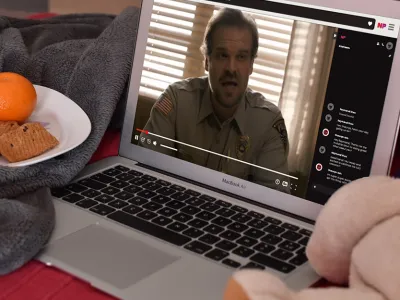
How To Check In On Your Pal’s Mental Health During Lockdown
Include this article in your Skills Builder Journal. It could help you develop... 
We may have been in lockdown for some time now, but that doesn’t necessarily mean we’ve all got to grips with it. Adjusting takes time, and can affect our mental health. NCS Grad Lucy lets us know what she’s doing to check in on her friends and make sure everyone is doing as best they can during these times...
Mental health is complex. Now with the added dash of lockdown, inconsistency and national fear, it’s easy to lose sight of how to help others around you.
There is no little handbook to flick through and understand the hardships of everyone, everywhere. Instead, there is only willingness to learn and understand. Outlined below are the steps I take to support my friends suffering with mental health issues.

1. Don’t take it personally
Inconsistency has become the norm, and for some people this can lead to days or weeks of not going outside or communicating with their support system.
Those who are struggling often don’t see the wider consequences. Initially, it can put strain on a friendship, or stir up genuine feelings of contempt or annoyance.
But it’s important to remember that they’re not purposely pushing you away, but trying their best to manage mental health issues that may be making them feel less sociable and numb.
It’s important to just let your friends know that you’re there for them, whenever they are ready to talk - if they want to. Don’t take their struggles as a personal attack against you, but be there for them when they need you.

2. Write letters
In a world of instant gratification, texting and calling, there is something quite refreshing about receiving personalised letters. Knowing someone has taken the time to write, prepare and send a heartfelt letter to you just might give you the strength you need.
Equally, baking your friends their favourite batch of cookies to leave at their doorstep or sending a loving text everyday could mean a lot. Simple things, big impact.

3. Schedules and routines
Understandably, anxiety is heightened due to the current situation in the world right now. Whether it’s another set of statistics or long, silent lines to buy groceries, stability seems like something of the past. That’s why I recommend organising set times and days to chat with your friends over the phone or on video. Try your hand at quiz nights, Netflix parties, arts & crafts sessions - anything that can offer a nice distraction.
Even if they don’t pick up the phone, send them the invite, and maybe even consider sending a simple check-in message.

4. Give them space, but still have a hand outstretched
This is the hardest advice to follow, since all I ever want to do is run to my friend's house and shake down their door as a reminder that I’m here for them. But it’s important to take a deep breath, reinforce your openness and desire to help, but take a step back to give them the space to come to you. It’s important we keep respecting people’s desire to sometimes simply be alone.
Even if you think you know someone is down, it’s never a good idea to force a confession of feelings out of anyone. It can be counterproductive and leave them feeling worse. With lockdown restrictions and the deprivation of physical contact with others, they may feel like they’re being a burden on you. As long as they know that you’re there for them, then it’s likely they’ll reach out when they feel they’re ready.

5. Look after yourself
It may seem obvious, but giving and giving is bound to drain you.. If you’re feeling weighed down, place your phone down and take a long bath, watch trashy TV you love, vent to your family, or have a good cry if you need to. Do what makes you feel like you, and balanced in your feelings.

6. Take advantage of the resources available
Mind is a mental health organisation who have put out various pieces of advice looking to ease the suffering of lockdown and isolation. Their resources on helping others is extremely informative and tries to break down the complexity of mental health to bite-size chunks.
The NHS have laid out all the free resources currently available here.
The Samaritans are available 24/7 to call on 116 123 for free. They are exceptional in any mental health crisis, and completely confidential.





